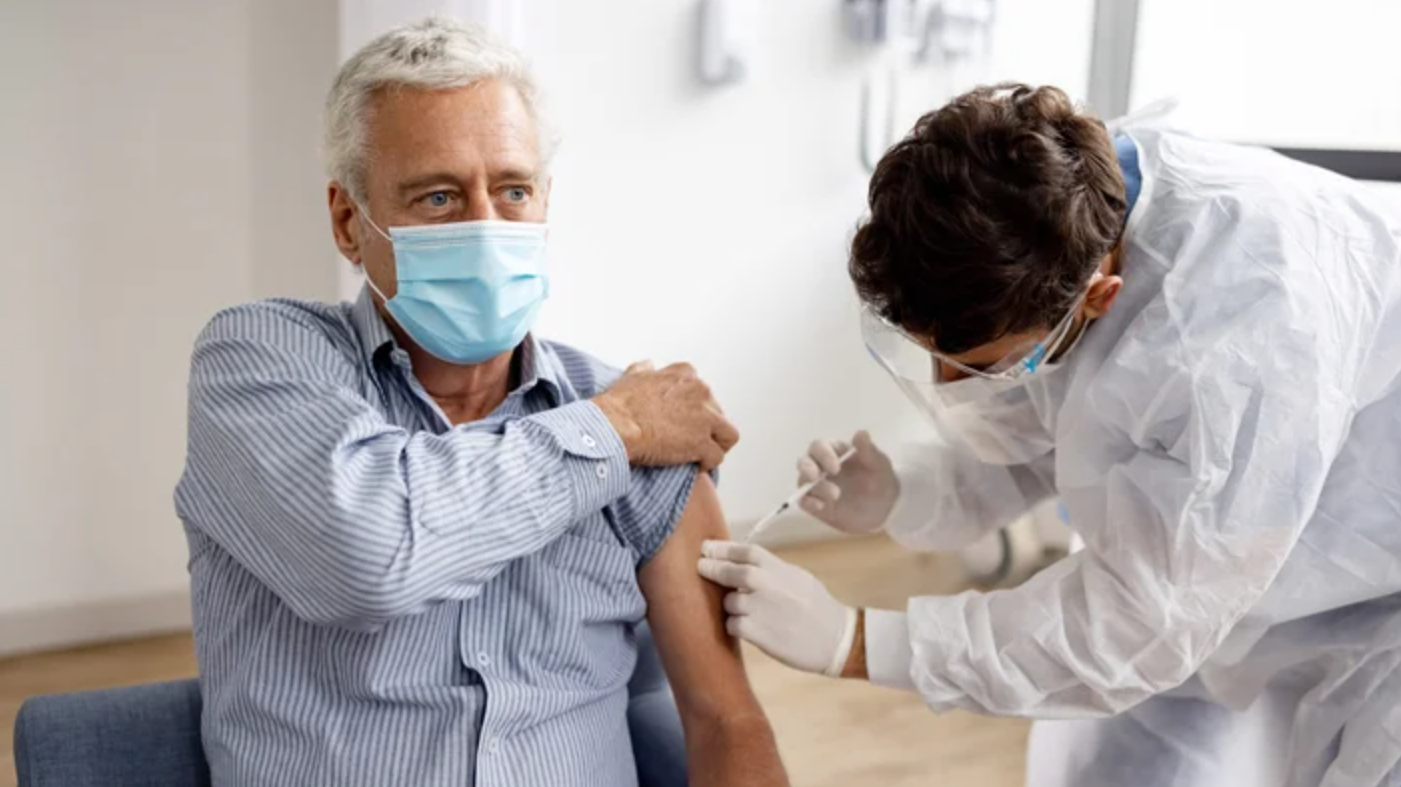Newly discovered gene protects men under age 75 from severe illness and death from COVID-19
A crucial anti-inflammatory gene offers protection to men under the age of 75 against severe illness and death when hospitalized with Covid.

A crucial anti-inflammatory gene offers protection to men under the age of 75 against severe illness and death when hospitalized with Covid-19. (CREDIT: Creative Commons)
A recent genetic analysis has found that a particular variation of a crucial anti-inflammatory gene offers protection to men under the age of 75 against severe illness and death when hospitalized with Covid-19.
The gene in question, known as interleukin-1 receptor antagonist (IL1RN), seems to suppress inflammation, which is the body's normal response to infection but can become harmful if not regulated properly.
The study, published in The Journal of Infectious Diseases, revealed that men aged 19 to 74 possessing the IL1RN variant, called rs419598, were less likely to experience severe illness or death from Covid-19.
Graphical Abstract. (CREDIT: The Journal of Infectious Diseases)
According to the researchers from NYU Grossman School of Medicine, IL1RN is a naturally occurring gene that influences inflammation. Variations in interleukin genes, including IL1RN, can either increase or decrease inflammation levels, affecting various diseases such as arthritis. The findings of this study suggest that the same mechanism may be at play in the inflammation observed in Covid-19 patients.
The study, conducted at NYU Langone's Tisch Hospital in Manhattan from March 2020 to March 2021, involved genetic analysis of blood samples from 2,589 hospitalized men and women with Covid-19.
Over half of the participants were over 60 years old and obese, factors known to elevate the risk of death from the virus. Notably, more men than women succumbed to the disease, with women exhibiting a 20% lower likelihood of death.
Related Stories:
Dr. Mukundan Attur, co-lead investigator of the study, highlighted the significance of the findings, particularly for men aged 74 and younger possessing the IL1RN gene variant.
He emphasized that these individuals were less prone to severe inflammation associated with SARS-CoV-2 infection, resulting in lower mortality rates.
The study also observed significantly elevated levels of the anti-inflammatory protein IL-1Ra in hospitalized individuals compared to healthy controls. However, while the increased levels in men did correlate with reduced mortality, the same association was not observed in women.
IL1RN rs419598 protective genotype is associated with decreased mortality among men. A, Mortality rate by age categories and sex among SARS-CoV-2 infected COVID-19 patients. B, Model predicted mortality rate for men by IL1RN rs419598 genotype. (CREDIT: The Journal of Infectious Diseases)
Dr. Steven Abramson, the senior investigator of the study, underscored the biological connection between the severe inflammation in Covid-19 and that seen in rheumatoid arthritis.
Previous research has shown that individuals with certain IL1RN variants tend to have lower levels of rheumatoid inflammation. This suggests that interventions targeting the interleukin-1 pathway, such as IL1 receptor antagonists, could potentially mitigate the severe inflammation in Covid-19.
Further research is warranted to explore the effectiveness of IL-1-inhibiting therapies against Covid-19.
Dr. Abramson intends to investigate whether the IL-1 pathway is involved in long Covid, where individuals experience persistent symptoms even after recovering from the initial infection.
The study contributes to understanding the gender differences observed in Covid-19 deaths and emphasizes the importance of biological factors in determining disease outcomes.
Dr. Abramson noted that the findings add to the growing body of scientific evidence on this subject.
The research was supported by grants from the National Institutes of Health. Besides Drs. Abramson and Attur, other NYU Langone researchers involved in the study include Drs. Christopher Petrilli, Samrachana Adhikari, Eduardo Iturrate, and David Beck, among others.
Funding support for this study was provided by National Institutes of Health grants P30CA016087 and R21AR078466.
For more science news stories check out our New Innovations section at The Brighter Side of News.
Note: Materials provided above by the The Brighter Side of News. Content may be edited for style and length.
Like these kind of feel good stories? Get the Brighter Side of News' newsletter.
Joseph Shavit
Head Science News Writer | Communicating Innovation & Discovery
Based in Los Angeles, Joseph Shavit is an accomplished science journalist, head science news writer and co-founder at The Brighter Side of News, where he translates cutting-edge discoveries into compelling stories for a broad audience. With a strong background spanning science, business, product management, media leadership, and entrepreneurship, Joseph brings a unique perspective to science communication. His expertise allows him to uncover the intersection of technological advancements and market potential, shedding light on how groundbreaking research evolves into transformative products and industries.



